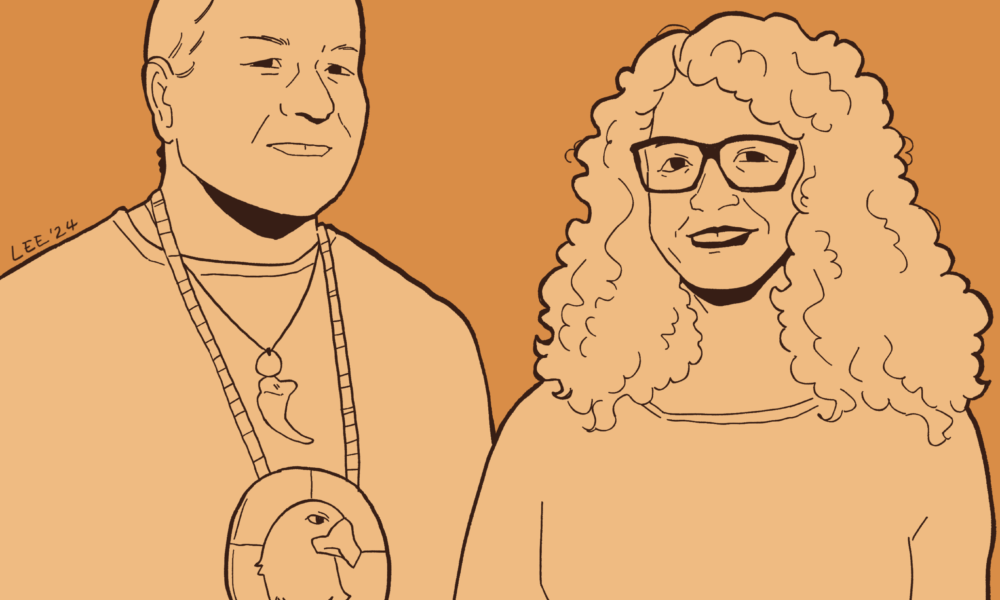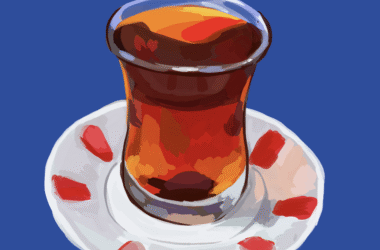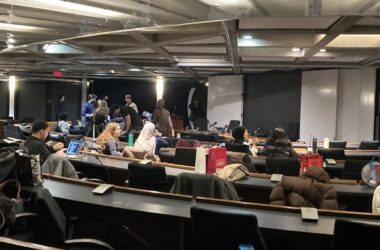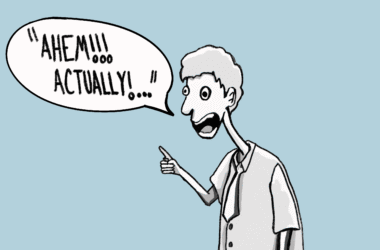McGill’s Indigenous Awareness Weeks kicked off with multiple Indigenous scholars and speakers offering students a chance to learn about the various intricacies of Indigenous culture, stories, and testimonies. On Sept. 24, a crowd gathered at the Redpath Library to listen to guest speakers Carmen Robertson and Robert Spade discuss Centering Ojibwe Anishinaabe Art.
Carmen Robertson, Scots-Lakota Professor of Art History at Carleton University in Ottawa, presented in depth the life and works of Norval Morrisseau, the renowned Ojibwe artist also known as Osawa Bego Binesa (Copper Thunderbird). She focused on his use of colours, symbolic elements like water and manidoog (spiritual entities), and his connection to the land. Robertson also touched on the visual storytelling of the artist and his journey of artistic self-discovery.
Robertson’s presentation resonated with many students, as it explored the powerful symbolism behind Morriseau’s art and its connection to Indigenous worldviews. Mylee Downey, U2 Education, shared her thoughts in an interview with The Tribune.
“The visual and the talk of colour were so clear in how they related and it was powerful to see its intricate meaning of life and land,” Downey mentioned.
Afterwards, Robert Spade (Keeshigooninii), an artist-educator from the northern Ojibwe territory in Northern Ontario (Obuckimaakang), shared his personal experience. Currently a professor at McGill’s Schulich School of Music and a specialist in Indigenous music, he offered attendees a personal and thought-provoking testimony of his childhood and his passion for art. He demonstrated a persistent sense of self and his community through his paintings, describing his persistence with art despite systemic barriers.
Yigit Akalin, U2 Education, shared that he is glad that Indigenous experiences and histories are finally being discussed, as they have often been sidelined or erased in mainstream education.
“[They are] no longer swept under the rug and Indigenous perspective is possibly slowly being integrated into the university culture,” Akalin said.
During Indigenous Awareness Weeks, McGill seemed resolved to acknowledge its role in the alienation and continued oppression of Indigenous people in Canada and its campus. But is the university truly meeting its responsibilities? By opening spaces to the Indigenous community with discussions and other events on campus, McGill appears to be pursuing the recommendations of the Truth and Reconciliation Commission’s Calls to Action to address injustice and recognize the rights of Indigenous peoples. But is this effort truly so sincere?
In 2018, McGill’s men’s sports team changed their name from “Redmen” to “Redbirds” after nearly 80 per cent of students voted in favor of the change in a referendum held by SSMU. This decision reflects the integrity and solidarity of the McGill student body in supporting progress and systemic improvement within McGill culture.
While the McGill student body is advocating for meaningful changes, many feel that McGill’s Indigenous Awareness Weeks may not be sufficient on its own.
“It is nice to see that there are steps taken towards reconciliation, but I think there is always more to be done,” Downey said, regarding the event.
Theresa Kannuthurai, U4 Education, also acknowledged that there is still significant room for improvement in how Indigenous issues are addressed at McGill, particularly in amplifying Indigenous voices.
“Not everyone’s voices are heard enough. McGill should contribute more to promoting these events,” she said.
The powerful art showcased at the event made it inevitable to be affected by a multitude of profound and intertwined feelings regarding identity, community, and resistance. The continuing legacy of McGill and Canada’s oppression of Indigenous people complicates their attempt to showcase Indigenous art. No one is free until everyone is, and the celebration of culture is essential for this journey.







